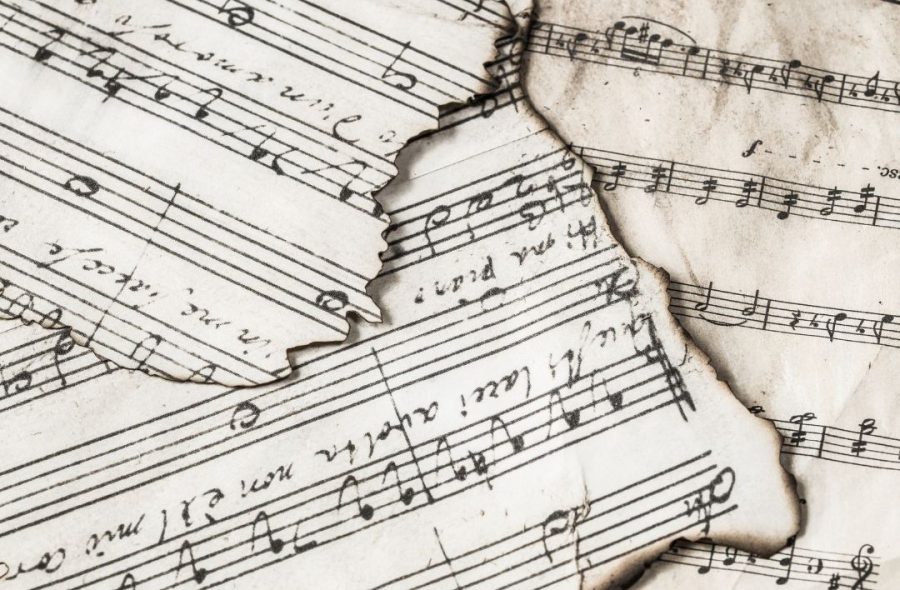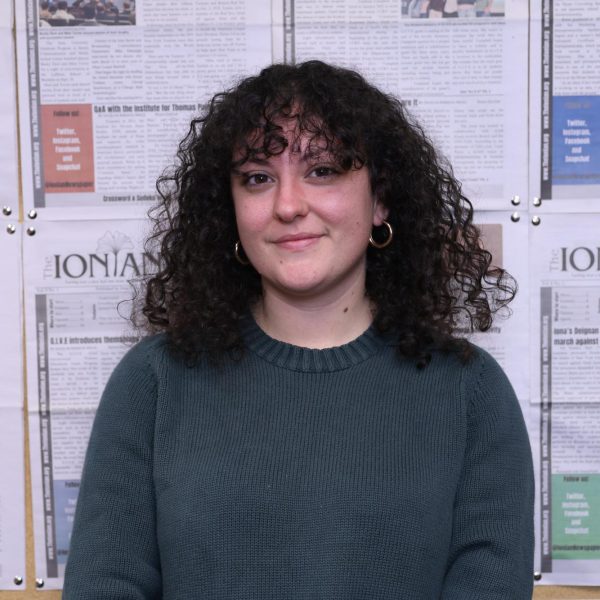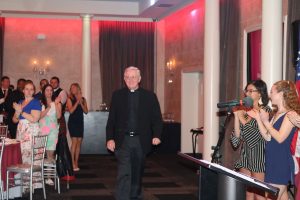Who gets the AUX: Federica Mantini’s personal account on music and relationships
Music is a universal language that many people bond over.
November 17, 2022
I’m in the car with my friend Sam. She is a senior majoring in journalism. We’re driving two hours upstate to go see some dead writer’s estate auction exhibit. The radio plays a Beatles song. “We bonded over that,” Sam said. “Me and Seamus, I asked him what song reminded him of me, and he said it was a Beatles song. You know me,” she continues, “I’m a Beatles girl.”
I don’t care much for The Beatles, but I don’t tell her that. Instead, I turn the volume up until my ears start to ring a little bit, because there is something to be said about exorcizing the past by making it into something brand new. When the next song starts playing, she launches into another story, some characters recurring, some new, stopping in between sentences to sing along.
Music, sometimes, is muscle memory.
Olivia Delgado, a sophomore and education major, said that upbeat music can remind her of “a good memory but not necessarily a memory associated with the song,” even though it’s not an absolute.
“When I listen to ‘Message in a Bottle,’” Delgado said, “I think of dancing in the rain with my friend. I didn’t even like the song before then.”
Senior and psychology major Sofia Miceli said something similar, that music is a way to “convey emotions into a work of art, an emotional tool.”
“It’s how you cope with what you’re dealing with,” Miceli said.
Music is, like all artistic expressions, some form of communication or as senior Kostas Argyros puts it, a way to stave off the awkwardness and confusion that make up social interactions and relationships.
“There is always the anxiety of losing someone or saying something that can be misconstrued,” Argyros said. “Music lets us express ourselves without having to be blunt. Other times, music is what lets us express ourselves, period.”
Aleksander Slavkovic, a freshman entrepreneurship major, is a member of the band Sunscin. When asked about music and relationships, Slavkovic bluntly states that “if the relationship is bad, eventually it’s going to become a song.” Slavkovics says that songs come from experience, most of them bad, music is, according to him, “a way to express yourself, get emotions off your chest.”
I don’t know if I’d be able to give a personal definition of what music is to me, but I do know it’s an important part of what makes up The Moment, whatever that might mean.
On our way back from Hudson, Sam and I talked about Bob Dylan. She said she’d love to see him live but hasn’t yet, and she is worried he won’t be alive long enough for her to go to one of his concerts. I chuckled at that, but agree, and told her about the time I saw him at The Beacon in 2019, an early Christmas present to my dad— there’s something in there about love languages and core memories. I told her it was good, but not very interactive. To be honest, you kind of just sit there and listen. She said she didn’t care; she just loves him so much. “Once my friend Emma told me he wasn’t that good,” Sam said, “and I kicked her off the bench. She still has the scar.” I made a sound at that that’s half baffled, half amused. My friend shrugged, not taking her eyes off the road, “It’s Bob Dylan.”









